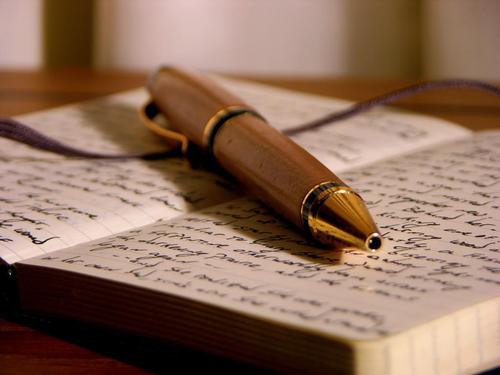Amid these very important questions, it can be difficult to find a true North, a heading that is reliable. With these thoughts buzzing inside my cranium, I ran across an article online by the author Ronlyn Domingue that struck a chord with me. In this article, she talks about about moments of understanding, ephiphanous instances in life where one has what she calls a "Deep Know." Domingue goes on to describe these Deep Knows, saying:
"[They are] an insight so profound that being rational makes no sense and intuition is the purest form of logic. A person feels it in her cells, the manifestation in her gut. Even now you're thinking about yours. The moments you just knew."
 |
| Dear Cosmos, Send my epiphany now. Please and thanks! -Mandi |
Unfortunately, these don't come at one's beck and call.
Like Domingue, I have had a couple of Deep Knows myself. One (Surprise, surprise!) regarded writing and seemed ridiculous when the understanding broke over me. I sat in front of my archaic Dell desktop a few months into a very rough pregnancy typing up the beginning of what would become an ongoing four year labor of love, my novel. I surfaced from a long spell of being lost in the creation of a scene that burned in my mind's eye, and in the wake of escape from hormone induced nausea, I realized I was happy. A happiness that bordered on serenity, on bliss. The smile faded as the weight of the Know came. I want to write.

I've learned that in order to follow and honor this Deep Know as Domingue talks about, I need to write. To write, I need time. Time is something I do not have oodles of, so in order to keep up the writing, there are a few things I've learned to do and think.
 1. Take It with You and Use Downtime
1. Take It with You and Use DowntimeI take one of two things with me most days. One is a notebook, and the other is my iPad with a bluetooth keyboard. In the gaps between classes, I have what I need to get some work done. I find an empty classroom, a table in the frigid library, a somewhat comfy bench, or a random chair and get after it.
2. Auxiliary Writing Tasks
Sometimes, the words just don't come, or they come in a begrudging, leaden way. Sometimes, I get stuck. Do I just put things away and go check my Facebook or Twitter? (You should follow me by the way @MandiMcRay!) If I'm being honest, I do but not super often. If the words won't come or a certain scene is thumbing its nose at me, I make use of my in-between moments to do what I like to call Auxiliary Writing Tasks.
 |
| After seeing this meme from author Sami Lee, I think I should expand the scope of my research. |
I also do outline, detail, and connection checks. Pulling out my working outline, I consider pacing, order, plot momentum as well as check for plot holes and missing details or connections that I may or may not have mentioned. Things that help round out a character's motivation or create a link where one needs to be but isn't yet can pop up and smack you in the face during these moments. Doing this also helps keep me at least somewhat inserted in my story even when I'm not able to work toward a scene's completion or find the right dialogue. Often, the clouds of writer's block will clear a bit while doing this review and note making, and I'll find myself able to get back to the actual work of writing once again.
Another thing I've recently discovered is the reviewing and tweaking of my synopsis. A good synopsis is a vital thing. It's one of the major pieces that a writer includes when querying an agent, so it's important to say the least. Aside from its importance, it's also a useful tool to whip out when working on your manuscript. I find it helpful when I want to take a step back and look at the big picture of my story line. Can I easily see the plotting of my story arc? Am I shoving too much action into one area or possibly letting one stretch string along without enough happening or developing? My synopsis helps me see how the puzzle pieces are fitting together from a concise, bird's eye view.
3. Sleep is optional
 |
| May or may not resemble me in the morning. . .at least before coffee. |
So, to sum up: If you've had your Deep Know about writing (or anything else creative or career related), tell me about it in the comments below! Oh, and follow it, of course. Feel free to use the tips I've suggested, or find an entirely new set that suits you and your writing habits.
Have a wonderful day and a splendid week, and don't wake me up early. If the meme above isn't warning enough, you need a cranium check.
Did I mention I've joined Twitter? No? Well, I have. @MandiMcRay. Follow me! I'm funny or at least try to be, and I follow funny, insightful, interesting people. Doesn't get much better than that. . .unless you add coffee to the mix, but that goes without saying. Know the Deepness, convey truth, and write!










